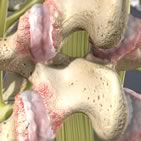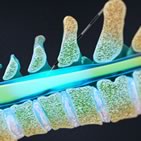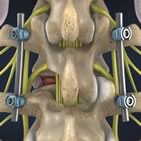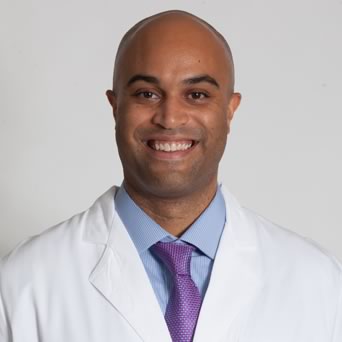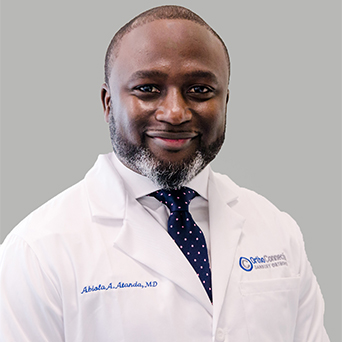The Most Comprehensive and Expert Care in Western Connecticut
The OrthoConnecticut Spine Center is the most highly regarded spine practice in the region, offering interventional and surgical techniques to address all conditions affecting the cervical, thoracic, and lumbar spine. Our board-certified orthopedic spine doctors treat the full range of spine conditions, providing highly personal attention to address each patient’s unique problems and concerns.
Compassionate, Personalized Care With a Conservative Approach
At The Spine Center, you will also find exceptionally compassionate and integrated care. Our team of orthopedic spine specialists always take a conservative approach, providing treatment and pain management techniques without surgery. However, when surgery is required, our total spine specialists use minimally invasive, state-of-the-art procedures whenever possible. As a result, our patients have less pain, recover faster, and don’t have the negative effects of a large incision.
Experience, personalized care, and optimal results are the backbone of The Spine Center.
What are the Most Common Spine Conditions that Need Treatment? There are three main categories of spinal conditions:
- Degenerative Spine Conditions, caused by aging, including such conditions as Spinal Stenosis, osteoarthritis, osteoporosis and spondylosis
- Spinal Curvatures, such as scoliosis in children, scoliosis in adolescents or scoliosis in adults
- Spinal Injuries, causing herniated discs, compression fractures of the spine, or muscle strains in the upper back/trapezius
Pain Management and Chiropractic Care in Connecticut
The Spine Team works closely with our Pain Management physicians, as needed, to customize treatment for each and every patient. They are joined by our chiropractic teams in Ridgefield and New Milford, who are experts in the latest chiropractic practice to improve alignment, advance function and reduce discomfort or pain.
Our team of spine physician specialists include:
Our team of physiatrists & pain management specialists include:
Our team of chiropractors include:
Common Spine Procedures and Conditions Treated:
- Ankylosing Spondylitis
- Adult Spondylolisthesis in the Low Back
- Anterior Lumbar Fusion
- Back Pain in Children
- Cauda Equina Syndrome
- Cervical Radiculopathy (Pinched Nerve)
- Cervical Spondylosis (Arthritis of the Neck)
- Cervical Spondylotic Myelopathy (Spinal Cord Compression).
- Chordoma
- Congenital Muscular Torticollis (Twisted Neck)
- Congenital Scoliosis
- Herniated Discs
- Idiopathic Scoliosis in Children and Adolescents
- Kyphosis (Roundback) of the Spine
- Low Back Pain
- Lumbar Spinal Stenosis
- Neck Pain
- Neuromuscular Scoliosis
- Sciatica
- Scoliosis
- Spinal Deformity in Children with Myelomeningocele
- Spinal Instability
- Spinal Stenosis
- Spondylolysis and Spondylolisthesis
Spine Conditions and Treatment Frequently Asked Questions
What is the difference between an Orthopedic Spine Surgeon and a Neurosurgeon?
The main difference between an orthopedic spine surgeon and a neurosurgeon is their training and the focus of their surgical practice. Both are highly skilled medical doctors. An orthopedic spine surgeon specializes in musculoskeletal and joint issues with deep knowledge of bones, joints, muscles, tendons, and ligaments. An orthopedic spine surgeon diagnoses and repairs conditions of the spine, back and neck such as cervical, thoracic, lumbar spinal anatomy problems but will also treat fractures, hip/knee arthritis, shoulder pain and musculoskeletal injuries. A neurosurgeon focuses on the conditions of the brain, spine, peripheral nerves, and cerebrovascular system and treats conditions such as brain aneurysm and tumors, epilepsy, Parkinson’s disease, as well as spinal cord injury. Both orthopedic spine surgeons and neurosurgeons often work as a team to treat all spine conditions.
What spine problem is common with older adults?
Older adults commonly have age-related back, neck and spinal pain or stiffness from our cartilage, joints and discs wearing down from everyday usage or losing water and shrinking as we age. Over time, we can also experience narrowing of the space around our spine, or spinal stenosis, which puts pressure on the spinal cord and/or spinal nerves causing symptoms ranging from pain, numbness, tingling to progressive loss of function. Spinal arthritis, also a degenerative condition, can occur when the joints above and below vertebrae begin to degenerate. In addition to age-related wearing down of the disc and other tissues, this could result in abnormal curvature of the spine commonly referred to as Degenerative Scoliosis. This condition could cause a debilitating functional problem. Some adults experience decreased bone mass – osteopenia or osteoporosis, which leaves us more vulnerable to vertebral fractures even with a low impact injury or fall.
If you experience neck and back pain, don’t ignore it because even if it’s age related there are treatments that can help no matter what your age.
How do you know if you have a spine problem?
Although symptoms do vary, common symptoms of spine problems include a burning, aching, shooting dull or sharp pain from your neck to arm, forearm, or hand and back to buttock, thigh, leg, or feet. There could also be associated tingling and numbness. Symptoms could also be as severe as weakness in your hands and legs, as well as difficulty using your hands, and walking due to poor coordination. If your spine is misaligned, you may feel discomfort when walking due to fatigue, inability to stand straight and pain, tingling, and numbness in your legs. Most spine problems are not emergencies, but if you have back pain with pain going down one or both legs, urinary retention, loss of feeling around the buttocks please get to the nearest emergency department as soon as possible.
What is the reason for spine pain?
Pain in the neck, back, and spine is common, frequently caused by a pulled or torn muscle, or a ligament (commonly called a muscle strain). Poor posture, lack of exercise and physical fitness, as well as being overweight are some of the contributing factors. Other things that can contribute to spine pain are previous injury, arthritis, fracture, tumor, metastasis, infection, trauma.

